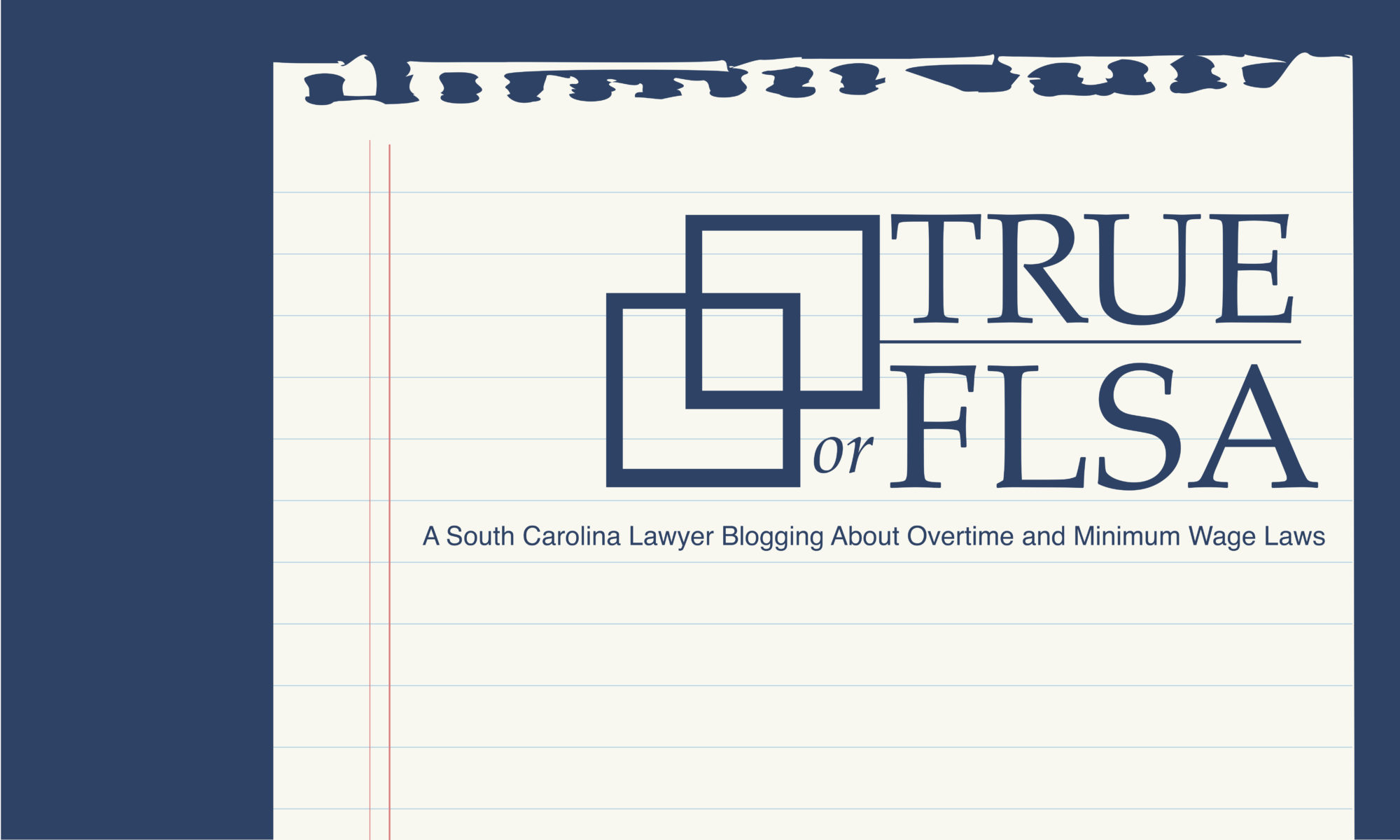Earlier this week, the U.S. Supreme Court ruled that certain employees of a car dealership in California were exempt from overtime pay under the Fair Labor Standards Act (FLSA). Unless you’re an automobile service adviser for a car dealership, the specific factual outcome of the case is likely not important to you.
However, more importantly, the Supreme Court decided that “exemptions” from overtime should NOT be looked at narrowly. Exemptions, under the FLSA, are the different categories of employees who don’t get overtime pay. For example, supervisors, office managers, and professionals typically do not get paid overtime, so long as the employer pays them a sufficient salary. They are “exempt” from overtime requirements. (I’ve blogged about these exemptions in more detail at my law firm blog page here.)
So now, the Supreme Court has determined that these exemptions should be viewed more broadly by the courts, which means in effect that the Court thinks the tie should go to the runner (i.e., the employer, NOT the employee); this also means, potentially, that for employees whose cases are on the fence, courts may be inclined to side with the business. I expect to see many more companies using this case as a further defense in misclassification cases in the future. However, the fact remains that the duties test–in other words, do the specific duties that the employee performed fall within the proposed exemption?–will still have to be proved by the employer.
Bottom line: South Carolina employers who deliberately or accidentally misclassify employees as exempt from overtime run the risk of an FLSA lawsuit, which can result in back pay awards, liquidated damages, and attorneys’ fees. If you think you should be getting paid overtime and you’re not, give me a call.
